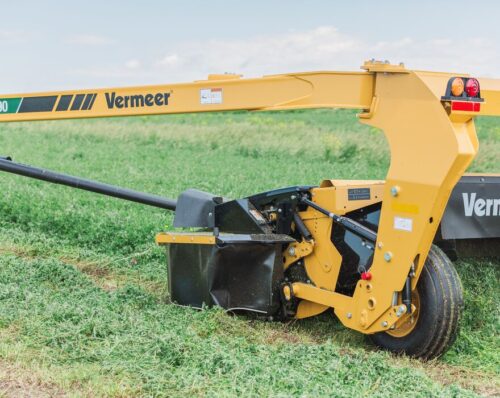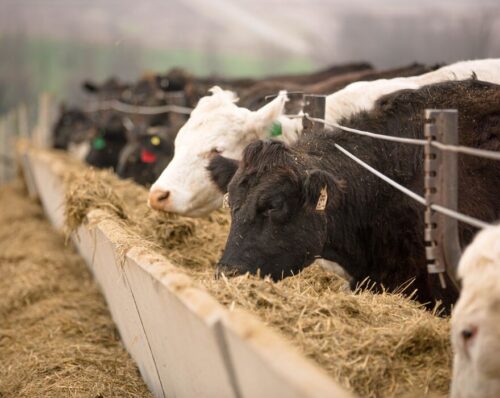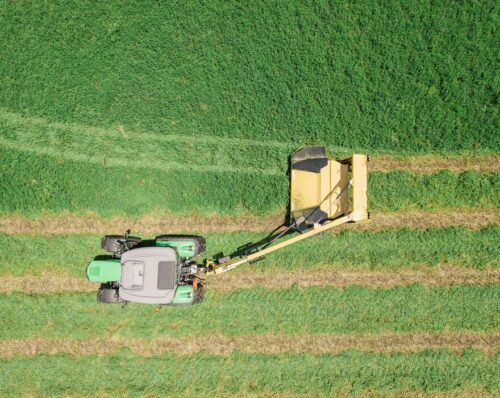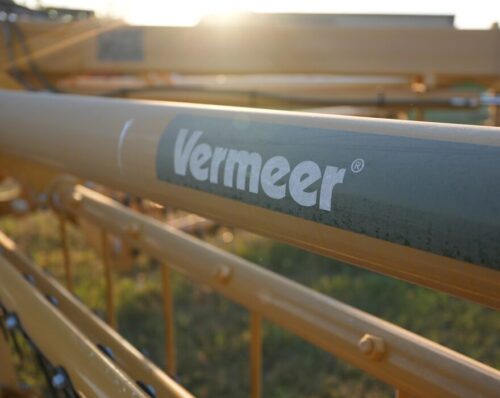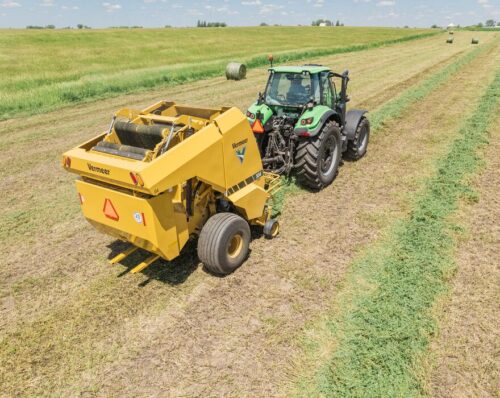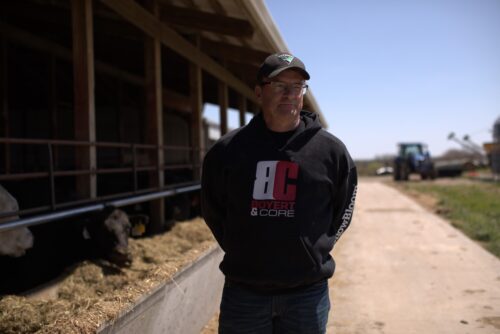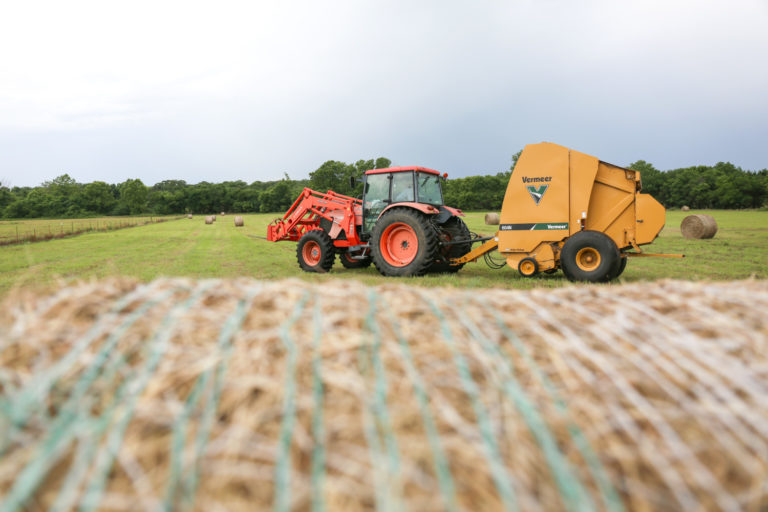
Building a Custom Hay Operation? Here Are 4 Tips To Help You Succeed
March 2022
Is a custom hay-cutting business part of your farm or ranch’s future?
The startup process for a hay farming business is similar to that of a farm or ranch. To get your operation off the ground, it’s key to build a customer base, employ good workers, provide excellent customer service, manage your time and get the right equipment. Not only are these things important to starting your hay business — they’re crucial to sustaining it for the long term.
We talked to hay producers Toby Roscoe and Cole Baker about their experiences and challenges in building their custom hay-cutting businesses. Here are four tips they say are critical to success for hay producers.
- Build a customer base
Customer relationships are important to the success of any custom haying business. Baker, who farms near Ashton, Nebraska, started with one customer and still has a simple goal: Be the hardest worker and take on the jobs that others won’t.
“Our goal is to always be cost effective, and we always work hard to keep our customers happy,” said Baker. “The biggest thing for me is that we do good work and don’t turn anything down,” he said. “We hit it hard and put in a lot of time.”
In southwestern Montana, Roscoe doesn’t take on more work than what he and his crew can handle, especially in high-demand times. To him, the quality of his custom work is more important than the quantity.
“It’s mostly word of mouth in the beginning. And having lived and worked on a ranch here, I know people. If they are interested in working with us, I just say ‘let’s give it a shot and see how it goes,’” he said. “My goal is to be there first thing in the morning and leave late. That’s what our customers appreciate.”
- Employ dependable workers
Hiring and retaining good employees is a challenge in the agriculture industry right now. Finding people he can trust is a big priority for Baker, and it’s something he said takes constant attention.
“It’s tough getting good employees, and that’s what makes the whole operation,” Baker said. “It’s best to get people who have a farm background and who are going to be dependable.”
Roscoe said the changing workforce has shifted the age demographics for his hires. “When we started, there was always a neighboring farm kid we knew who we could hire, and it wasn’t very hard to find help. That’s changed,” Roscoe said. “I’m lucky to have a couple of employees who work hard and take good care of the equipment. Keeping them on is a big priority for me, and I know it’s a challenge for a lot of producers.”
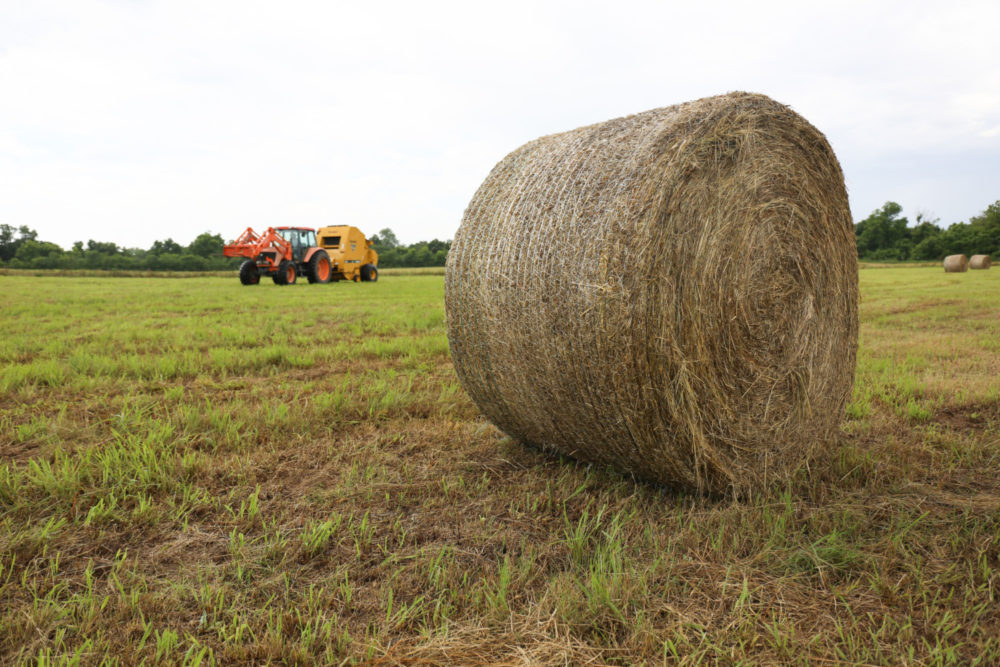
- Plan for weather
Weather is especially challenging for custom hay-cutting businesses during the busiest times of the year, when customers need hay work done in a short timeframe. Baker stays flexible so he can always serve his customers well, despite the weather.
“I communicate with all of our customers, so everyone’s expectations are realistic. If I have to bounce back and forth between two customers just to get the work done for both of them, I will, if it keeps them happy. But I keep my equipment working together as much as I can, because it’s inefficient for us to split up equipment.”
Paying close attention to his area’s weather and his customers’ elevations in the Rocky Mountain foothills helps Roscoe better manage how he schedules work and plans for potential weather delays. “With the weather, it’s simple for us: You just gotta go,” Roscoe said.
- Work with tough, efficient equipment
Baker strives to maintain a cost-effective equipment lineup, and his Vermeer balers meet his high standard for efficiency.
“I’ve run a lot of different balers, but with Vermeer, the quality, performance and service are all there,” Baker said. He adds that he typically trades balers every one or two years, depending on the number of acres he covers. “It’s just overall quality, and with the service we get from our dealer, you can’t really beat it.”
Roscoe sometimes swaths, rakes and bales in some “rough country” in the Montana foothills. His equipment needs to stand up to those conditions. That’s why his Vermeer lineup of a TE330 tedder, two R2800 twin rakes and four 605N balers are crucial to his operation.
“Basically, everything is heavy duty, and that really makes a difference,” Roscoe said. “Our dealer and customer service are just awesome, and that’s a big part of it.”

